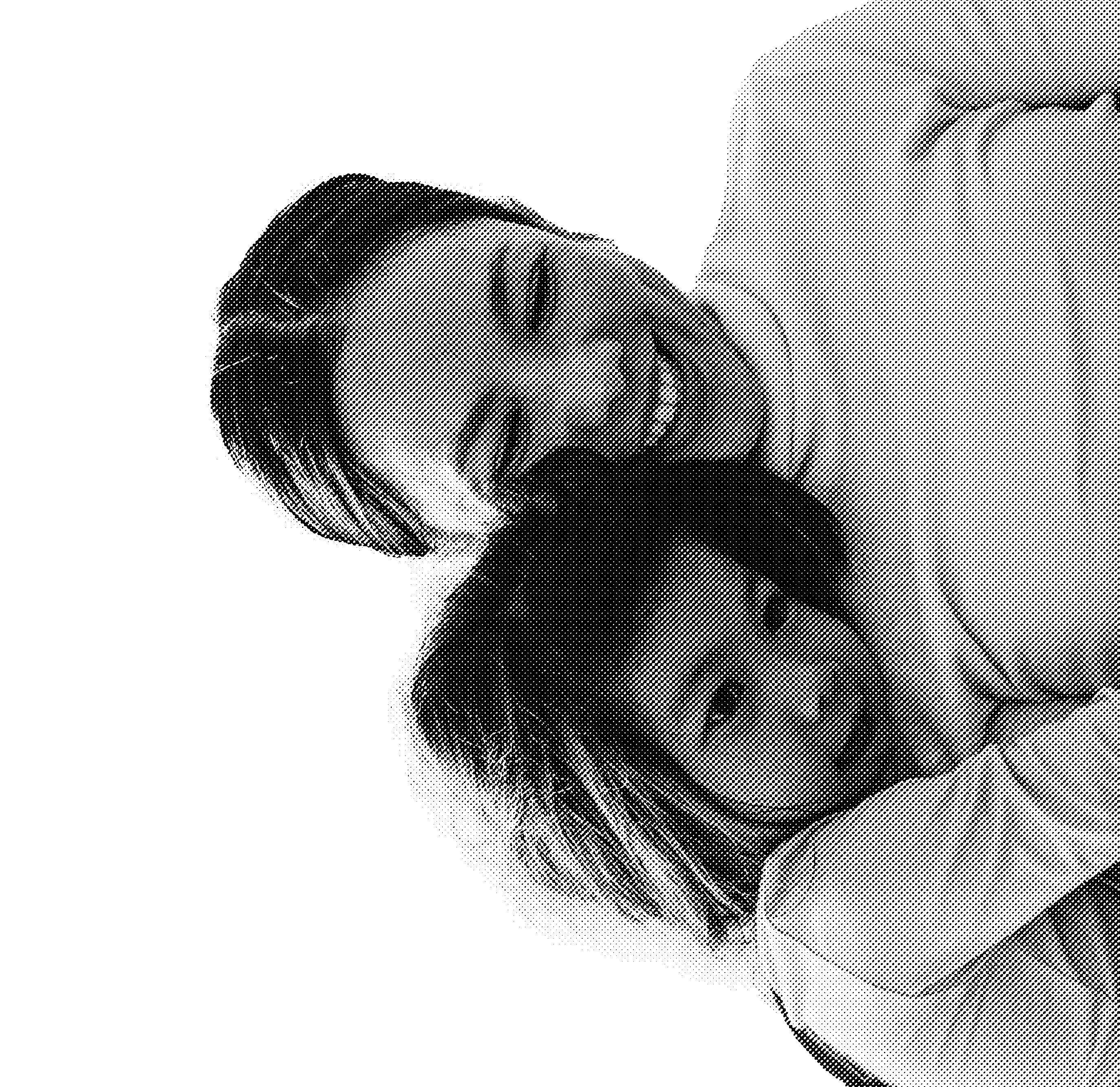If you or a friend need urgent assistance, call 911 immediately, or take your friend directly to the emergency room. If you feel it’s safe, stay with your friend, or find someone to stay with them until help arrives.
R~ADMAP TO BACK-TO-SCHOOL MENTAL HEALTH
Back to school season is an exciting time, but it can also be nerve-racking. Being mindful about how to support mental wellbeing at this time of year can go a long way to make the experience smoother for both kids and parents.
Read on to learn more about mental stress during back-to-school season, and to get tips for increasing wellbeing in both your child and yourself. A new school year doesn’t have to be so scary.


What is mental wellbeing?
…and why is it important during back-to-school time?
Mental wellbeing is a sense of emotional and cognitive wellness that is fueled by feelings of belonging, safety, and meaning in one’s life (more info here). While it is always important, its importance becomes stronger during life changes, and going back to school is one of those.
The back-to-school season often causes stress because of the many unknowns related to it. Some common questions kids have include:
- “What will the new school year be like?”
- “Will the classes be hard?”
- “Am I prepared?”
- “Will I be able to juggle all of my responsibilities this year?”
- “What will my teacher(s) and classmates be like?”
- “Will I fit in?”
And the questions that parents have are often similar, with the addition of:
- “Will my kid be happy this year in school?”
- “Will they do well?”
- “Did I do enough to prepare them?”
- “How will they manage the change?”
Not knowing the answers to these questions can cause stress that takes a toll on mental wellbeing. However, there are also simple actions we can take to help manage this stress, as outlined throughout this Roadmap.
How to manage mental stress during back-to-school season
Below are some tips for anyone managing the back-to-school period with their child. Take note of which ones resonate most with you and see if you can give them a try, or help your child consider which might be best for them.
For your child/children
Pay attention. Look out for signs of mental health concerns like these:
Body
Changes in appetite
Shifts in energy (fatigue, taking long naps every day)
Difficulty sleeping
Headaches, stomachaches, nausea, or other aches or pains
Feeling jittery, or needing to move constantly
Not taking care of themselves (personal hygiene, wearing dirty clothes)
Mind
Irritability, feeling down, or other changes in mood
Feeling anxious, or worrying about typical daily activities
Trouble breathing, or new nervous habits/behaviors
Avoiding responsibilities
Trouble thinking clearly, or having communication issues
Feeling defeated or hopeless
School & Friends
Change in academic performance or attitudes toward school
Signs that your child is being bullied or is bullying others
Wanting to stay home from school more often
Isolating themselves, feeling lonely, or less interest in friends
Less interest in activities or friends they used to enjoy


Actively support your child’s mental wellbeing
Don’t wait for the problem to get so big that it’s unmanageable. Use the below tools to support your child during the back-to-school time even if they only seem a little nervous.
Talk it out
Engage in discussion about what is worrying your kid about returning. Only after that and fully validating their feelings, you might ask them to consider the bright side about returning to school.
Use teamwork
Engage in a collaborative process with your child around managing the stress of going back. Ask them what they think would be helpful to address their fears/discomforts.
Get creative
Consider other ways of creating a supportive environment when addressing back-to-school stress. Depending on the age of your child, maybe writing, drawing, using clay, or using action figures to express feelings would be less intimidating than just talking.
Enlist others
If your child is having a tough time, reach out to their teacher or support people in their school so they can get further help at school. Explain to your child why you’re doing this so it doesn’t surprise them.
Create fun to look forward to
Plan an after-school or weekend activity during the first week of school that your child can look ahead to with excitement. This will make the back-to-school adjustment not feel like the only thing in their life right now.
Plan ahead
Run through with your child how the days will look and the details of their schedule. Do this in a fun way, perhaps with drawing, stickers, etc.
Learn more
More information from: ADAA, AFSP, Child Mind Institute (a), Child Mind Institute (b), Mental Health America, On Our Sleeves (a), On Our Sleeves (b), The Steve Fund
Conversation Starters
Below, scroll through some specific things you can say to start the conversation about back-to-school stress. Be sure to adapt these to an age-appropriate level for your child:
“How are you feeling about going back to school?”
“It’s ok if going back to school feels hard this year. It would be hard for me too.”
“What feels hard about going back to school? What feels exciting? It’s normal to have different feelings about the same thing.”
“I noticed you haven’t liked talking about going back to school (or any other behavior you’ve seen that shows they are nervous). That’s ok. If you want to talk about it, I’m here.”
“It’s ok to ask for help, and you can always ask me.”
Supporting a transition to a new school
A transition to a new school can be extra difficult during the back to school season. Whether your child is transitioning to a new elementary, middle, high school, or college campus, big changes like this can cause anxiety, stress, or other disruptions in mood. Below are some actions you can take to help your child navigate this transition.
1
Explore the campus with your child.
Visiting the school before the school year begins is a great way to make them feel more familiar with their new environment. Print out a map of the campus and have your child practice walking through a typical day at school. This may ease any anxiety about getting lost on the first day of school (source).
2
Encourage extracurricular activities.
Talk with your child about any potential extracurricular activities they are interested in joining. Becoming involved in their school’s organizations will help them meet new people, learn more about themselves, and gain confidence.
3
Arrange social activities before school starts.
Getting together with friends before the school year may help your child feel more comfortable in their social abilities and get them more used to the amount of interaction they will encounter (Bring Change to Mind).
4
Check in with your child about their feelings regarding the new school year.
Your child may express anxiety about attending a new school. Rather than dismissing their fears, listen and remind them that it’s okay and you’ll get through it together. Additionally, you can help your child strategize about how to handle things they are worried about (Active Minds).
5
Meet your child’s teachers early in the school year.
Introducing yourself to your child’s teachers can help ease your own anxiety about your child’s new school. Knowing the person your child is with during the school day can give you a better idea of their day-to-day experience. This also allows you to communicate with the teacher about your child’s needs.
6
Research the resources available to your child.
Educate yourself about the mental and physical health resources available at your child’s new school. Communicate with your child about how people like school counselors can be useful resources during the school day (Bring Change to Mind).
For yourself
Pay attention. Look out for mental health concerns in yourself. This will help you take better care of yourself so that you can also better support your kid(s) during this time.
Body
Low energy
Feeling distant, foggy, cloudy, or not like yourself
Feeling fearful about your child attending school
Difficulty sleeping
Changes in appetite
Body aches, headaches, tension, nausea, or chest pain
Mind
Feeling down or sad most of the day
Feeling irritated, worried, or preoccupied by back-to-school tasks
Trouble concentrating
Difficulty making decisions
Lack of interest in activities you typically enjoy
Guilt or shame about how you are filling your roles (e.g., parent, partner, friend, colleague)


Actively support your own mental wellbeing
Scroll through the below tools to support yourself during your child’s back-to-school time.
Get organized
Create two lists — one of your worries related to back to school (to address your emotional needs) and one of your to-dos to get your kid ready for back to school (to address your practical needs).
Put things into perspective
Remind yourself that your kid has done difficult things before, and so have you — you’ll both be able to get through this adjustment. You can also consider specific coping strategies you have used for difficult situations in the past and use them here. Chances are what’s been helpful before will be helpful again today.
Take care of yourself
Be purposeful about taking time for your own self-care. You might feel pressure to support your child as much as possible, and while that’s important, you can only do that if you are well taken care of. Thinking of 3 specific ways to engage in self-care this week and actually putting them on your calendar can ensure that it doesn’t get pushed to the backburner (more info).
Don’t go it alone
Reach out to friends or family for support. This can be a tough time for not only children but parents as well.
Learn more
More information from: Child Mind Institute
A reminder about this time:
The back-to-school time, although it can cause stress, also provides a unique opportunity for growth. Periods of newness allow you to do things in a new and improved way. This is a good time to create healthy habits for both physical and mental wellbeing. For example, if you’re not used to checking in on your child’s mental health, this could be the time to start. Take the back-to-school time as an opportunity to bond, connect, and support your child through this change.
RES~URCES
Check out the Mental Health Coalition’s Resource Library for additional information on boosting mental well-being.
If you would like to learn more about children’s mental health, here are some resources for further learning. In this way, both you and your child are learning during the back-to-school time.
Bring Change to Mind
Bring Change to Mind is a nonprofit dedicated to encouraging dialogue about mental health and raising awareness about mental illness stigma and discrimination. Check out some of their multimedia campaigns and storytelling content here, like their Talk Tool to explore the many ways you can talk about mental health with people in your life. They also have a Pep Talk tool that allows you to browse encouraging videos about mental health and even create your own.
Child Mind Institute
The Child Mind Institute is a nonprofit organization dedicated to understanding and treating children’s mental health and learning disorders. Here is a link to their resources for families with detailed information about children’s mental health concerns, disorders, and resources. They also have specific video resources that help parents navigate children’s mental health.
Girls Inc.
Girls Inc. is a nonprofit inspiring all girls to be strong, smart, and bold through direct service and advocacy. Here’s a link to their resource library with fact sheets and articles about how to talk to your kids, as well as tips for encouraging young girls.
Jed
Jed is a nonprofit organization promoting emotional health and suicide awareness and prevention among teens and young adults. Their website offers useful information for parents who want to help their teens. Here is a link to their resource center with tips and information about promoting young adult mental health. They also offer campus based programs and guides for high school and college students.
On Our Sleeves
On Our Sleeves is an organization working to end the stigma around children’s mental health. Here is a link to their Back to School Wellness Tool Guide with information on how to prepare children for back to school.
The Steve Fund
The Steve Fund is an organization dedicated to supporting the mental health of young people of color. Here is a link to their blog with information for students and families. They also have a youth healing space with mental health videos from real students and a Family Corner with tips for caregivers looking to support the young person in their life.
The Trevor Project
The Trevor Project is a nonprofit organization that provides crisis and suicide intervention services for LGBTQ youth. Here is a link to their resources with information for LGBTQ youth and allies, and here is their support center for school-related topics.
Active Minds
Active Minds is a nonprofit organization that supports mental health education and awareness for young adults. Here is a link to their blog with information on a variety of mental health topics. They also have a page dedicated to self-care tips for students.
YourMomCares
YourMomCares releases an annual Back-to-School Mental Wellness Checklist that helps parents support their child’s sense of self, provide coping mechanisms, and enhance their child’s functionality, productivity and sense of agency. This year’s 5th annual checklist, in partnership with The On Our Sleeves Movement For Children’s Mental Health, helps parents and kids prepare for the circumstances and emotions unique to back to school.
UCLA STAND for All
UCLA offers an online, self-paced, anonymous program designed for college students to develop skills and strategies to manage common mental health issues, like low mood, worry, panic, social anxiety and poor sleep.
credits
This Roadmap was created by Naomi Torres-Mackie, Ph.D.; Khyia Ward, M.Ed., LAC; Anna Marie Fennell, M.Ed., MHC-LP; and Zoey FitzGerald Kidwell for The Mental Health Coalition.
Special thanks to Saks Fifth Avenue for partnering on the first edition of this Roadmap, published in 2021, which can be found here.